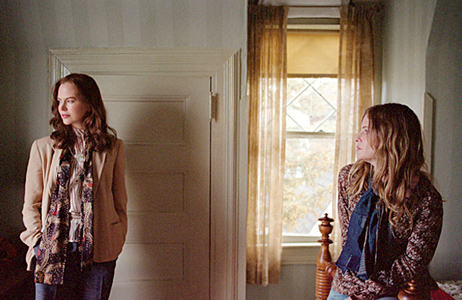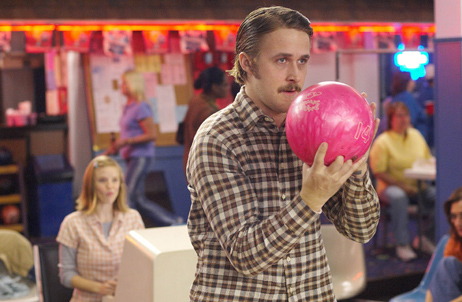Written by Noah Baumbach

I don’t think I get Noah Baumbach. I loathed “Kicking and Screaming” and I think I half-liked, half-hated “The Squid and the Whale.” The same could be said about his latest screenplay, “Margot at the Wedding.” I think for about half of the time I really enjoyed his writing, his characters, his dialogue and some of the conflicts he set up in such a simple, almost play-like situation. The other half I was just annoyed by how mean everyone was, how randomly disturbing acts of violence or sexuality would suddenly happen, and how the script becomes so self-aware every now and again.
And maybe that’s just me. I know a whole hell of a lot of people love the writer/director, and I guess I can see why. He has one thing going for him however, and that is that he’s gifted at directing actors. Or in fact, maybe he’s not; maybe he just gets incredible casts together that know exactly what to do. Regardless, I’m sure if “Margot” gets any awards attention it will be for its cast.
Nicole Kidman stars as Margot, a troubled wife/mother/sister who is, forgive me, a bitch. It’s a juicy role for Kidman though, and if the trailer is any indication, it’ll wind up being one of the stand-out performances of her career. The story pretty much follows the title: Margot and her son Claude (Zane Pais) go to Margot’s childhood home, now owned by her sister Pauline (Jennifer Jason Leigh) for Pauline’s wedding to Malcolm (Jack Black). Things have been sour between Margot and Pauline for the last few years, and Pauline isn’t sure if Margot is visiting to support her before the wedding or to continue her affair with an old-boyfriend. John Turturro will show up briefly as Margot’s husband Jim, and there is all sorts of bizarre craziness involving Pauline’s neighbors, who enjoy slaughtering and animals and nude romps in the backyard.
It’s Noah Baumbach, what else would you expect?
One thing evident right after completing the script is that this is the best role Jack Black has ever been given. He’s a man that often says (and does) the wrong thing, but something about his character here just came across as more endearing and believable than the other characters he’s portrayed. There’s a scene in the script that may call for Black to do full-frontal nudity while saying, “My scrotum is longer than my penis,” and seeing how fickle and silly our critics can be, it could just be the thing they need to see to begin counting Black as a serious actor.
Jennifer Jason Leigh’s role is strong as well. We see fragments of Margot’s bitchiness inside of her, but we also can see her trying so hard to not be that person, trying to simply be a loving sister, aunt, fiancé and mother (to daughter Ingrid). She’s perhaps the most likeable of the three leads, which may help her come Oscar season to finally grab herself a nomination.
Unless Margot becomes THE critic’s darling of the year, it’s not going to get anywhere near a Best Picture nomination. I could see all three leads and the screenplay (the obligatory “we like indie films!” screenplay nomination) getting notices, however, and that’s how I’d hedge my bets if I were you.
Like “The Squid and the Whale,” Margot ends with an odd flourish of hope for the future. It’s appreciated, but it’s too little too late, and it might even come off more sarcastic than anything. “Anxiety doesn’t go away, just so you know,” Malcolm tells Claude at one point, and it’s pretty clear Baumbach believes this. For a reader and a future audience member though, I’d love to see him smile a little more, and not think everyone alive was such a miserable nutcase. I’m sure he’d lose his indie cred, but he’d gain a new fan in me.



